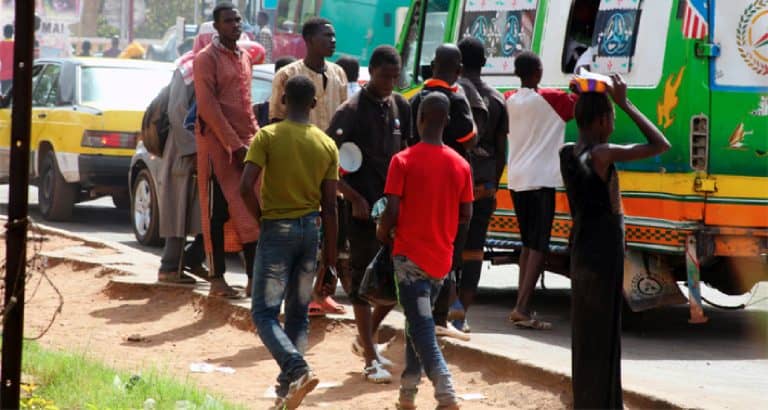For me, begging in Bamako, the capital of Mali, is a complex reality that challenges the conscience of society and poses a complex social issue. If we don’t tackle this problem, it could explode in our faces over the coming years.
Our country is centered on Bamako in all its socio-economic, political, and cultural aspects. This makes the city an attractive place that holds many broken and unmaterialized dreams. Indeed, many young people leave their villages and places of birth to find a bright future in Bamako, whether through education, trade, odd jobs or even swindling. Combine the precariousness of the rural exodus, poverty, and lack of education, and you have a cocktail that gives rise to begging. You may wonder why this issue is important to me. Well Bamako houses around five thousands beggars with an annual increase five per cent according to our Ministry of Planning and Regional Development.
Worse with this issue, is the fact that even babies and young children are used in our streets as a source of revenue for their parents. This create generations of beggars, who lacks appropriate education, training and perpetuate the cycle of poverty. “I’m a beggar because I have no choice. I lost my father at a younger age and I am living with a single mother, who cannot send me to school nor feed us. From a one-time activity begging, here I am on a full-time quest of coins in the streets between roaming cars and motorcycle.” The thirteen years old Solo, like many kids are daily exposed to homelessness, delinquency, sex work, and brutality in our bustling city. Yet, what are we doing to allow their socio-economic insertion?
We as a society through our communities we must get involved to address the issue of begging
Even if it provides short term salvation, in terms of food, clothing, and begging is perpetuate a cycle of dependency. This in turn may create social issues for individuals involved but we all as a society. Addressing begging requires a multifaceted approach that includes social support, employment opportunities, and initiative to alleviate poverty. Some individuals who have understood the importance of tackling this issue of begging are working on solution such as providing technical training to young people. However, these are not enough, we as communities and a society, must all be involved. We need to address the root causes such as decentralization of socioeconomic assets including quality education and job opportunities for young people. All these will contribute to reduce rural exodus, but also provide social security to individual living in precarity.


Super
Super